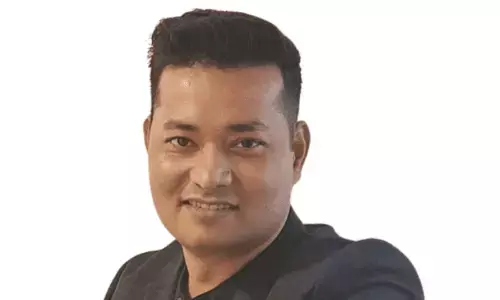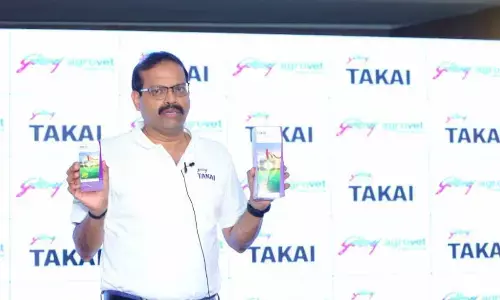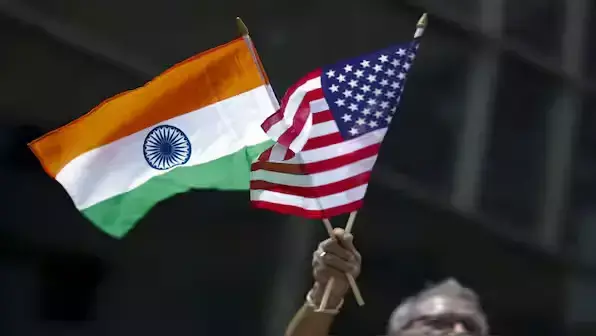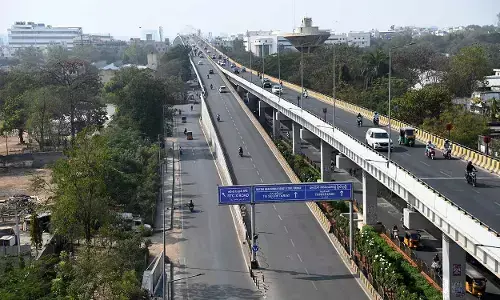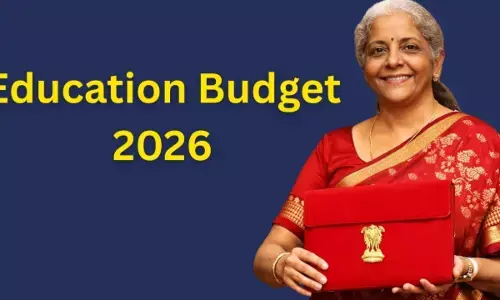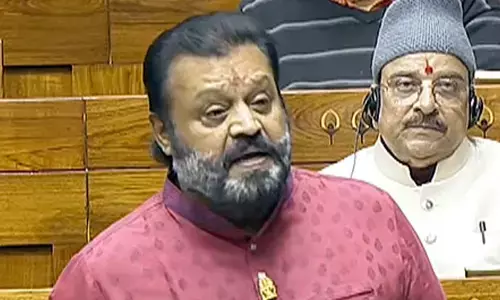Vid. S R Vinu: The Virtuoso Violinist Redefining Carnatic Music
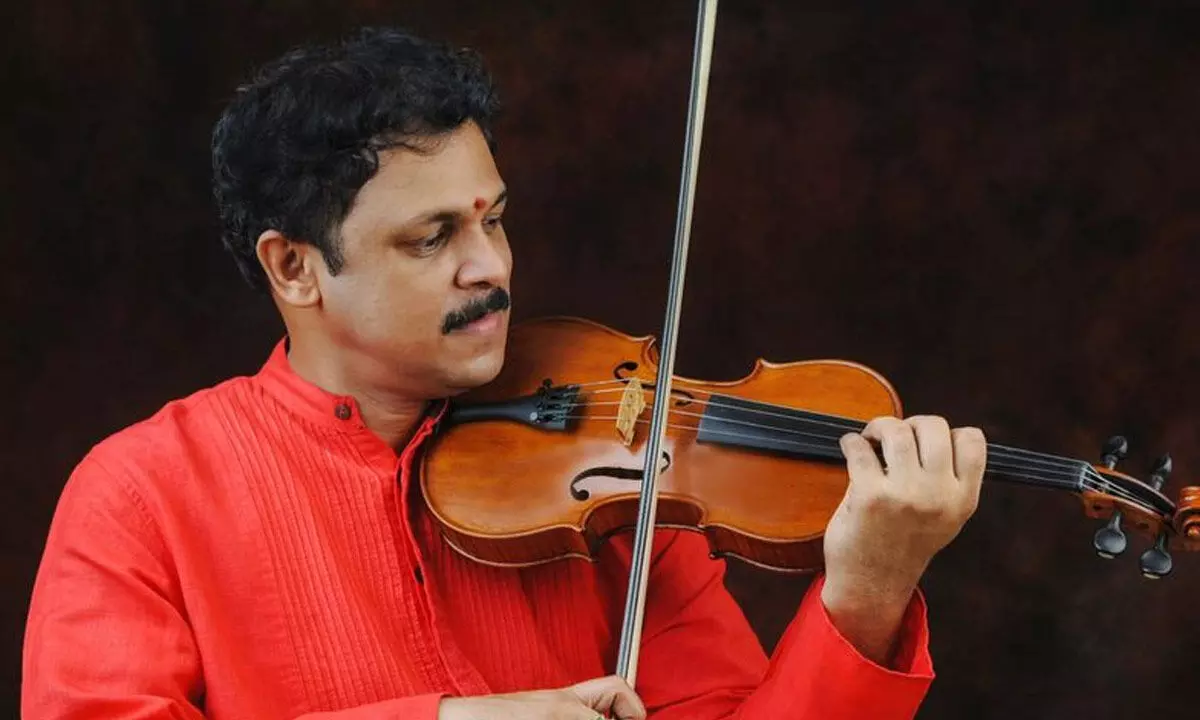
“Music gives a soul to the universe, wings to the mind, flight to the imagination, and life to everything,” said Plato.
“Music gives a soul to the universe, wings to the mind, flight to the imagination, and life to everything,” said Plato. The music that flows from the violin of Vid. Avaneeswaram S R Vinu embodies these words. The sound quality, dexterity, intonation, expression, harmony, rhythm, pace, flow, and technical proficiency—all speak to his mastery and dedication.
Vid. Avaneeswaram S R Vinu, a senior violin artist from Kerala, has earned the prestigious 'A-Top' grade from All India Radio. He has performed as a soloist and accompanist on prominent stages worldwide. Born into a family of musicians, he received his early violin lessons from R. Thyagarajan and later became a disciple of violin maestros Mysore Manjunath and Nagaraj.
His achievements include numerous prestigious awards, notably from the Madras Music Academy, and the title of "Kanchi Kamakoti Sangeetha Asthana Vidwan." Vinu has accompanied musical legends such as Dr. M. Balamurali Krishna, Sri T. K. Govinda Rao, Sri N. Ramani, Prince Rama Varma, Sanjay Subrahmanyam, Dr. K. J. Yesudas, Sri T. N. Sheshagopalan, Sri T. V. Shankaranarayan, Sri Neyyattinkara Vasudevan, and many more.
He has graced the most prestigious venues across India, the USA, Canada, Europe, the Middle East, Australia, New Zealand, Singapore, Malaysia, and Japan.
Here’s a freewheeling chat with the violin maestro:
1. Can you share the historical background of the violin and what makes one a good violinist?
The violin, with its roots in 16th-century Europe, was introduced to Carnatic music in the late 18th century. Sri Baluswamy Dikshitar, brother of Sri Muthuswamy Dikshitar, experimented with the violin in Carnatic music concerts after listening to British bands. Sri Tanjore Vadivelu, who learned the violin from a European missionary in Tanjore, was a musical genius who popularized the instrument in Carnatic music. He served as the Asthana violinist at Swathi Thirunal Maharaja’s court. Initially, instruments like the veena and flute were predominant in Carnatic music, but the violin eventually became indispensable. One reason for this is the violin's tone, which closely resembles the human voice. Additionally, it can be tuned to any pitch and replicate all kinds of "gamakas." Indian musicians mastered the violin over time, developing unique techniques.
2. What makes your violin sound so extraordinary?
Rather than detailing the extraordinary qualities of my violin, I believe a violinist should perfect their intonation, bhava, and knowledge in Laya, and ideally be able to play three and a half octaves effortlessly. Understanding bowing and fingering techniques, having sound knowledge of every raga, and compositions by various composers are crucial. A good violinist should also have the presence of mind to respond quickly during a performance. Most importantly, the music should always be soothing and divine, regardless of the tempo.
3. What does your daily routine look like, even as an established violinist?
I still practice the violin and prepare for concerts for four to five hours daily. This has been a habit since childhood, and I can’t imagine a day without practice. I have many students and teach them whenever possible. I also listen to a wide range of music, from new-generation artists to old maestros.
4. How do you adapt to new musical trends as a classical musician?
The violin itself was a new adaptation into Carnatic music at one point. I enjoy all music genres, from Hindustani classical to ghazals and even western music. However, I don’t intentionally mix these influences into my performances, especially with hardcore ragas like Bhairavi, Todi, and Varali, which I believe should be played with their unique essence.
5. Your family has a rich musical heritage—could you introduce them to us?
Everyone in my family is a musician. My father, a vocalist, served as the principal at RLV College of Music in Tripunithura. My grandfather was a Nadaswaram artist, and my great-grandfather was a Bhajan singer. My wife is a vocalist, and my two children (a son and a daughter) are also learning music, both instrumental and vocal.
6. You recently received a National Award as a music composer. Can you tell us more about it?
I began composing with the signature music for Akashvani Ananthapuri FM, which gained a lot of attention. This led to an opportunity to compose for an hour-long National program for Doordarshan on Vasantha Ritu from Kalidasa’s Ritu Samhara. The success of this project opened doors for more compositions for Doordarshan. I have also composed an album called “Madhava Sankeerthanam,” which includes Ashtapadis of Jayadeva, Krishna Gadha of Cherusseri, and poems by Smt. Lalithambika Antharjanam, among others. My composition for a Deepavali special program for Doordarshan, titled Deepanjali, earned me the National Film Academy’s Best Jury Award this year for the music video "Raase" from Jayadeva’s Ashtapadi, sung by my wife, Dr. S. Aswathy.
7. You are both a violinist and a vocalist—a rare combination. Have you always been a singer?
To become a good violinist, vocal training is essential. Vocal lessons have always been part of my musical journey and have given me a broader perspective as an instrumentalist. I have also performed vocal concerts.
8. What are your future plans? Where do you see yourself in ten years?
In ten years, I hope my name will be a major source of inspiration for young musicians.


